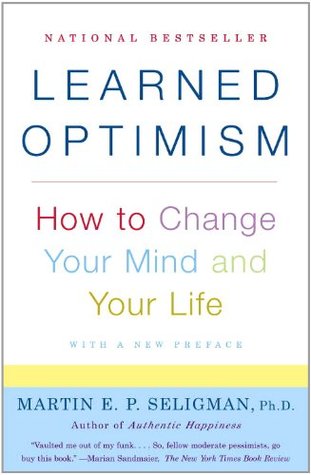More on this book
Community
Kindle Notes & Highlights
Read between
October 16, 2017 - May 2, 2018
Optimism is good for us. It is also more fun: What goes on in our head from minute to minute is more pleasant.
For another, it may sometimes keep us from seeing reality with the necessary clarity.
Finally, it may help some to evade responsibility for their failures.
But these limits are just that: limits. They do not nullify the benefits of optimism; rather ...
This highlight has been truncated due to consecutive passage length restrictions.
You now have a choice. If you learn optimism, you can choose to use its techniques whenever you need them—without becoming a slave to them.
When you face defeats and setbacks, you are now able to curtail depression by disputing the catastrophic thoughts that used to plague you.
You can choose to use optimism when you judge that less depression, or more achievement, or better health is the issue.
Learning optimism does not erode your sense of values or your judgment. Rather it frees you to use a tool to better achieve the goals you set.
What we want is not blind optimism but flexible optimism—optimism with its eyes open.
We must be able to use pessimism’s keen sense of reality when we need it, but without having to dwell in its dark shadows.


